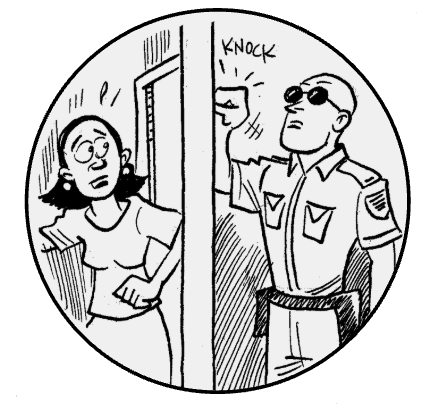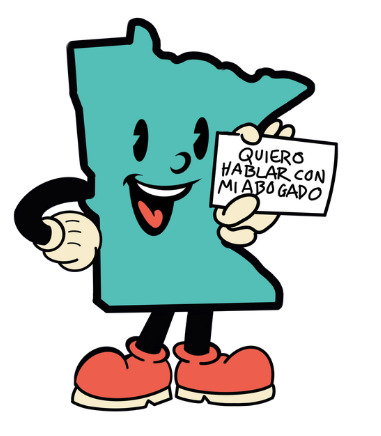The current United States administration has arrested or detained people who are not US citizens.
Learn how you can protect yourself if something happens to you or a loved one.
Your constitutional rights:
-
You have the right not to open the door if an immigration officer is knocking.
-
You have the right to remain silent and not answer any questions from an immigration officer if they try to talk to you.
-
Do not sign anything before talking to a lawyer. You have the right to speak with a lawyer.
-
If you’re outside your home, ask the agent if you are free to leave, and if they say yes, you can walk away safely.
-
If you’re inside your house, show this card through the window or slide it under a closed door. Do not open the door, as this can be seen as permission to enter your home.
If police or immigration agents show up at work:
Immigration agents must have a search warrant signed by a judge or the employer’s permission to enter your workplace. If it’s a public place, they do not need a warrant.
Stay calm. Do not run—this could be seen as having something to hide.
Talk with your coworkers to see if they are willing to make a collective decision that everyone—regardless of immigration status—will remain silent and ask to speak with a lawyer if there’s a workplace raid.
Tell your coworkers not to run and to stay calm during a raid. If your workplace has a union, contact your union representative to learn more about how to prepare.
If police or immigration agents detain you in public:
If the police or an immigration officer stops you on the street without the proper warrant, they cannot arrest you unless they have proof that you are not a U.S. citizen. Remember, you have the right to remain silent and to refuse a search. Do not say anything about your immigration status or where you were born. If you have valid immigration documents, show them.
Know which documents to carry
Always carry some sort of identification with you. Consider a State issued ID or driver’s license, work permit, green card, or any other government document confirming your presence in the United States. Make sure to carry a Know Your Rights card with you at all times as well.
Know Your Rights
If police or immigration agents show up at home:
You have the right to see a warrant if the police, immigration agents, or any other government agent tries to enter your home. A warrant is a paper signed by a judge that allows the agent to come in. The warrant must clearly state which places the agent is allowed to search. Do not open the door.
Ask the agent to pass the warrant under the door. If you open the door and give the agent permission to enter, it can be considered that you’ve given your “consent” to enter. If the agent enters without a warrant, ask for the names and badge numbers of the agents and tell them you do not “consent” to a search. Also, write down the names, addresses, and phone numbers of anyone who witnessed what happened.
If the agent has a warrant, watch the search to make sure they don’t search any area not listed on the warrant. Ask for a receipt for anything the agent takes.
If you’re detained by the police:
You have the right to ask a police officer if you are being arrested or detained.
If the officer says, “NO, you are not being arrested or detained,” ask if you are free to leave.
If the officer says you can leave, walk away slowly and calmly.
If the officer says, “YES, you are being arrested or detained”…
YOU HAVE THE RIGHT TO REMAIN SILENT!
IF YOU DO NOT HAVE DOCUMENTS…
Do not answer any questions, or just say, “I need to speak with my lawyer.”
Do not sign any papers before talking to a lawyer.
If you have valid immigration documents, show them and always carry them with you.
Do not say anything about where you were born or how you entered the U.S.
Do not carry documents from another country (the government could use this in a deportation case).
Show the “Know Your Rights!” card that comes with this pamphlet.
Above all, do not show fake documents and do not lie!




